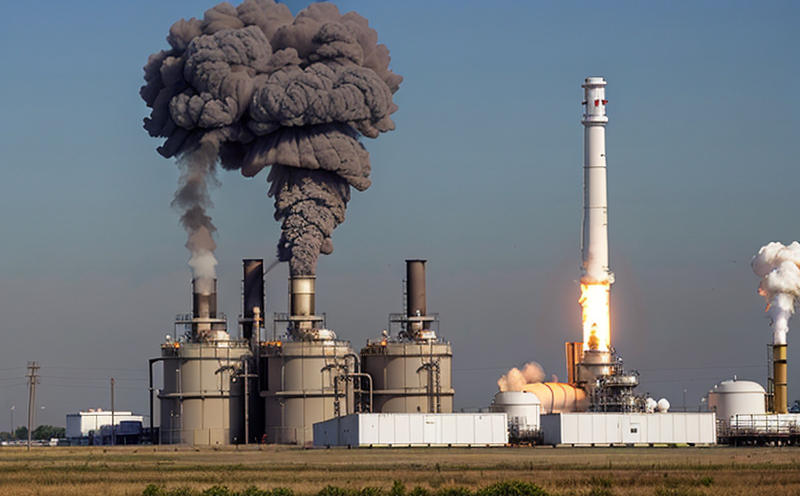Long-term gas emission studies for regulatory compliance
The Crucial Role of Long-term Gas Emission Studies for Regulatory Compliance Ensuring Business Viability in a Changing Regulatory Landscape
In todays increasingly stringent regulatory environment, businesses are under mounting pressure to ensure compliance with gas emission regulations. Failure to do so can result in significant financial penalties, reputational damage, and even business closure. One crucial tool in achieving regulatory compliance is the long-term gas emission study, a specialized laboratory service offered by Eurolab. In this article, we will delve into the world of long-term gas emission studies, exploring their benefits, applications, and importance for businesses seeking to maintain a competitive edge.
What are Long-term Gas Emission Studies?
Long-term gas emission studies involve the systematic measurement and analysis of gas emissions from various sources over an extended period. These studies help businesses understand their environmental footprint, identify areas of improvement, and develop strategies to reduce their gas emissions. By providing a comprehensive picture of gas emissions, long-term studies enable companies to make informed decisions about investments in pollution control measures, energy efficiency upgrades, and sustainability initiatives.
Why are Long-term Gas Emission Studies Essential for Businesses?
Long-term gas emission studies offer numerous benefits that can enhance business performance, reduce environmental impact, and promote regulatory compliance. Some of the key advantages include
Compliance with Regulatory Requirements Long-term gas emission studies ensure businesses meet their obligations under existing regulations, such as the EUs Industrial Emissions Directive (IED) and the United States Environmental Protection Agencys (EPA) Clean Air Act.
Risk Management By identifying potential environmental risks, companies can develop strategies to mitigate them, reducing the likelihood of fines, lawsuits, or reputational damage.
Improved Energy Efficiency Long-term gas emission studies help businesses identify opportunities for energy savings and invest in more efficient operations, reducing costs and environmental impact.
Increased Transparency and Credibility Companies that demonstrate a commitment to sustainability through long-term gas emission studies can enhance their reputation and stakeholder trust.
Strategic Decision-Making By providing a clear understanding of gas emissions, businesses can make informed decisions about investments in new technologies, processes, or supply chains.
Applications of Long-term Gas Emission Studies
Long-term gas emission studies have a wide range of applications across various industries, including
Energy Generation and Distribution To monitor greenhouse gas (GHG) emissions from power plants, refineries, and other energy-intensive facilities.
Industrial Processes To assess gas emissions from manufacturing processes, such as cement production or chemical processing.
Transportation To evaluate the environmental impact of transportation modes, including maritime shipping, aviation, and land-based logistics.
Waste Management To analyze gas emissions from waste disposal operations, such as landfills or incinerators.
How Long-term Gas Emission Studies Contribute to Sustainability
Long-term gas emission studies are a vital component of any sustainability strategy. By
Reducing Greenhouse Gas Emissions Companies can decrease their carbon footprint and contribute to global efforts to mitigate climate change.
Improving Air Quality Long-term studies help businesses identify opportunities for reducing air pollutants, such as particulate matter (PM), nitrogen oxides (NOx), and sulfur dioxide (SO2).
Enhancing Resource Efficiency By optimizing energy consumption and resource usage, companies can reduce waste and minimize their environmental impact.
QA Frequently Asked Questions about Long-term Gas Emission Studies
Q What is the typical duration of a long-term gas emission study?
A The length of a long-term gas emission study varies depending on the specific requirements of each project. Typically, studies last from several months to several years.
Q How do I select the right laboratory for my long-term gas emission study?
A When choosing a laboratory, consider factors such as expertise in gas emission analysis, availability of specialized equipment and facilities, and adherence to industry standards (e.g., ISO 17025).
Q Can long-term gas emission studies help me reduce costs associated with regulatory compliance?
A Yes, by identifying areas for improvement and developing targeted strategies, companies can reduce their environmental impact and minimize the financial burden of regulatory compliance.
Q What are the limitations of short-term gas emission studies compared to long-term studies?
A Short-term studies may not capture seasonal or episodic variations in gas emissions, which can lead to inaccurate conclusions about a facilitys overall environmental performance.
Conclusion
Long-term gas emission studies are an essential tool for businesses seeking to maintain regulatory compliance and reduce their environmental footprint. By providing a comprehensive understanding of gas emissions, these studies enable companies to make informed decisions about investments in pollution control measures, energy efficiency upgrades, and sustainability initiatives. With the increasing stringency of regulations worldwide, businesses that invest in long-term gas emission studies will be better equipped to navigate the complex regulatory landscape and maintain their competitive edge.
About Eurolab
Eurolab offers specialized laboratory services for long-term gas emission studies, ensuring that our clients meet their regulatory obligations while reducing their environmental impact. With a team of expert scientists and state-of-the-art facilities, we provide comprehensive solutions for businesses seeking to optimize their sustainability performance.




